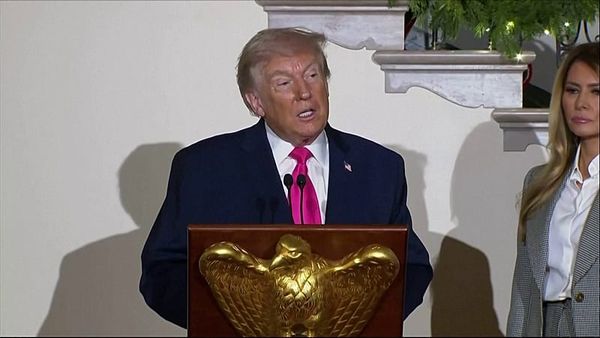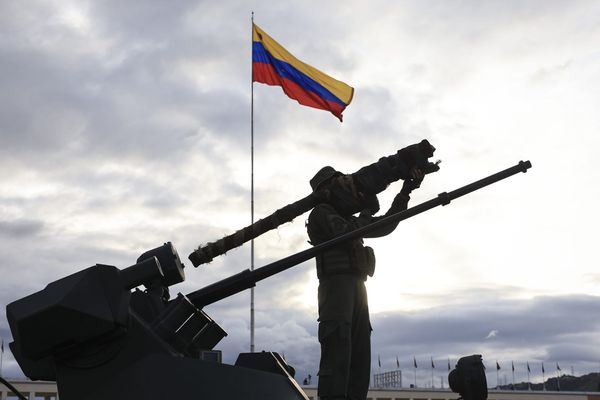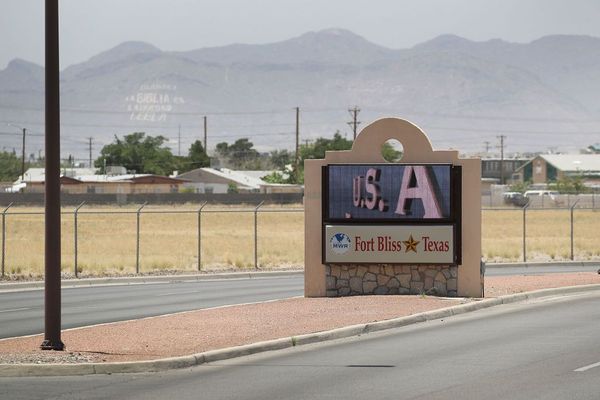
A new year in Ukraine began in much the same way as the old one finished: with deadly Russian drone attacks across the country. In Kyiv, one person was killed and at least six others were injured in the first few hours of 2025.
It is Ukraine’s third new year since Russia’s invasion. If 2023 began with hopes high that Ukrainian battlefield gains would push Russia back and lead to an outright victory, by the start of 2024 the Ukrainian army and population were already settled in for the long haul and had few illusions about a quick victory.
Now 2025 begins with morale at perhaps the lowest point of the war – and with Donald Trump’s presidency on the horizon. Trump has said that ending the war is one of his top international priorities, and has appointed retired US general Keith Kellogg as his special envoy charged with the task.
A seasoned veteran, Kellogg is expected in Kyiv imminently and is a more welcome choice for Ukraine than other figures in Trump’s orbit, who have clear pro-Russian views. Kellogg has already visited Ukraine during wartime and seen first-hand the results of Russia’s war. Ukrainian officials believe these visits have often fundamentally altered the views of western politicians on the conflict.
Prior to his appointment, Kellogg had suggested a policy of threatening to cut off weapons to Ukraine if it refused to negotiate with Russia, but increasing them if Russia did not play ball. In recent days, he has criticised Russia’s attacks on Ukraine but also rebuked Ukraine for actions such as the assassination of a Russian general in Moscow.
“The world is closely watching actions on both sides,” he wrote on X after condemning a Russian attack on Ukrainian cities over Christmas.
It is this equivalence, implying a fair fight between two parties who have equal responsibility, that has alarmed some in Kyiv and other allied capitals, who feel it is an unfair characterisation of a brutal invasion of a sovereign nation by Russia.
“Think of a cage fight. You’ve got two fighters and both want to tap out. You need a referee to kind of separate them. And I think President Donald J Trump can do that – he’s got a vision to do that,” Kellogg said in a recent television appearance.
However badly such statements go down in Kyiv, it is clear that Ukraine desperately needs a change in dynamic. Russia is continuing a grinding offensive and Kyiv is struggling to mobilise enough men to hold the frontlines. Last month, two sources in Ukrainian air defence units told the Guardian the situation was so bad that trained air defence operators were being ordered to the front to join infantry brigades.
Added to this has been a mounting frustration with the Biden administration, with many in Kyiv feeling decisions to support Ukraine have been too slow and incremental to make a difference, while in Washington there is a feeling that Volodymyr Zelenskyy’s administration has been unwilling to make difficult political choices such as lowering the age of mobilisation.
As Biden’s term winds down, the mutual irritation has on occasion spilled into the public domain, and led many in Kyiv to quietly welcome the prospect of a Trump White House, even if all the signs are that it could be much more challenging for Ukraine. On the other hand, there is a distinct feeling that, with totally new political circumstances in Washington, Ukraine is entering the unknown at just the time when the situation at the front is the hardest.
“It feels a bit like when you’re playing a video game and you’ve spent ages advancing through the levels and finally know how to navigate it,” said one security source in Kyiv of the troubled but productive relationship between Ukraine and the Biden administration. “Now all the rules are different and it’s going to be hard to learn them all over again.”
Back in May, when the Guardian interviewed Zelenskyy, he said his plan for a Trump presidency would be to try to impose upon the incoming US leader that he would be a “loser president” if he took Vladimir Putin’s word about wanting peace and it then turned out that the Russians had played him.
Now Zelenskyy is trying a different tack, making statements that appear calibrated to appeal to Trump’s sense of himself as a dealmaker. “Trump can be decisive… He has the right qualities to be decisive in this war – he is able to stop Putin or rather to help us stop Putin,” he said in an interview with Ukrainian television on Thursday.
Putin has also been flattering Trump, praising his intellect as well as his courage after the assassination attempt on the campaign trail.
“There’s a reason Putin is calling Trump smart too,” said Tatiana Stanovaya, a Russian political analyst. “It’s a game to play along with Trump that: ‘You’re smart, you’re not stupid. You understand how to do things.’”.
As both leaders wait to see what Trump’s Ukraine policy will look like, there is little sign that either Moscow or Kyiv is ready for anything like the kind of concessions the other side would consider the minimum requirement for peace.
Putin wants to seize, at the very least, the territory he already controls, and also has demands over Ukrainian neutrality and disarmament that would be impossible for any Ukrainian leader to sell politically. Zelenskyy, meanwhile, has admitted that painful compromises may be necessary, but insisted that, in return, he would need some form of meaningful security guarantee against subsequent Russian escalation, such as a promise of Nato membership or western peacekeepers on the ground. Neither option currently looks likely.
A senior western defence official who has left office but stayed in touch with Ukrainian counterparts, said there was little sign Ukraine is ready to make concessions without such promises: “Western security guarantees will be crucial in any peace talks. Without these guarantees, what would prevent Putin from invading again in a few years?”
Additional reporting by Pjotr Sauer







